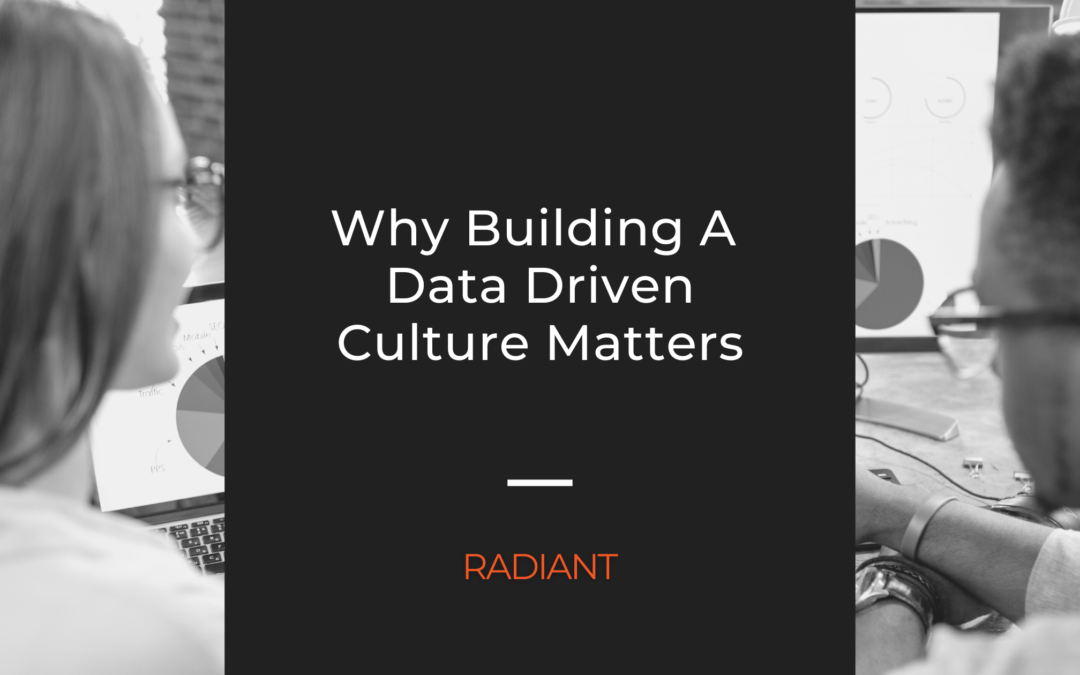The success of your business relies on the efficacy of its operations, and data is just as essential to it as any tangible asset.
With the rise of Internet of Things (IoT) technology, data scientists aren’t the only ones with access to powerful tools for tracking and managing real-time information about assets critical to management decisions.
When integrated into the workplace culture through programmable IoT asset tracking systems, businesses can begin to cultivate a data-driven culture in their organizations – one that enables better decisions, improved productivity, and increased operational efficiency from day one.
Read on to learn why building a data driven culture matters for your business today.
What is a Data Driven Culture, and Why Does it Matter for Businesses Today?
In today’s world, businesses are often faced with an overwhelming amount of data. Harnessing that big data and using it to drive business decisions is what sets data driven cultures apart.
A data driven culture is one in which decisions are made based on data analysis, and necessary changes are implemented to improve overall performance.
By leveraging data and analytics in a meaningful way, data driven organizations can gain a deeper understanding of their customers, markets, and operations. This, in turn, enables them to make better-informed decisions that drive growth, innovation, and profitability.
In short, a data driven culture is critical for businesses that want to stay ahead of the curve and remain competitive in today’s fast-paced and ever-changing world.
The Benefits of Developing a Data Driven Culture
A business that prioritizes data knows that it can be the key to unlocking growth and staying competitive. A data driven culture is about making decisions based on insights and patterns uncovered by data rather than gut feelings or intuition.
The benefits of building and maintaining data cultures are numerous: better decision-making based on objective metrics, increased efficiency, identification of areas for improvement, and the ability to make more accurate predictions and forecasts.
Additionally, a data driven culture can fuel innovation and inspire teams to think outside the box as they uncover new insights and angles for analysis through data collection.
In a world where information is king, a data driven culture can be the difference between thriving and struggling in business.
The Consequences of Failing to Foster a Data Driven Culture In Business
The age of technology has brought with it a plethora of opportunities and challenges for businesses. One of the most critical is the need for a data-driven culture. Organizations that fail to foster data literacy will undoubtedly suffer negative consequences.
These consequences manifest in unreliable decision-making, poor forecasting, and sub-optimal organizational performance. Leaders who push accurate data out of the picture often find themselves making decisions based on gut instinct, personal bias, and even misinformation.
In summary, the failure of businesses to promote a data driven culture is akin to shooting oneself in the foot- the consequences can be both painful and unwarranted.
To receive a monthly newsletter highlighting our newest and most popular blogs, sign-up below.
How IoT Asset Tracking Can Help To Build a Data Driven Culture
As businesses compete for an edge in today’s market, they need to embrace the power of IoT asset tracking to streamline operations and foster a data driven culture.
Data-driven asset management enables businesses to gain insights into their supply chain and logistics operations, monitor inventory levels, and track the location of valuable assets in real-time. This technology also provides an opportunity for businesses to extend their control over their operations, which is essential in adopting a data driven culture.
By leveraging the data gathered from IoT asset tracking, companies can generate actionable insights that help make better informed decisions and identify areas of improvement. With a data driven culture, businesses can stay ahead of the competition by being more agile, efficient, and responsive to the ever-changing needs of customers.
Combining IoT asset tracking with a data driven culture provides a transformative solution for businesses looking to improve their operations and achieve sustainable growth.
What to Look for in an IoT Asset Tracking Platform
When it comes to selecting an IoT asset tracking solution that can help businesses foster a data driven culture, there are a few key features to look out for.
Firstly, the platform should be able to collect and store data from various data sources, including sensors, machines, and other IoT devices. This data should then be analyzed and presented in a user-friendly dashboard that can help business leaders make informed decisions in their day to day.
Additionally, the platform should offer real-time tracking and historical data, as well as predictive analytics tools like machine learning to help identify potential issues before they arise.
Overall, selecting an IoT asset tracking platform with these capabilities can help businesses transform their operations into a more data driven culture.
Start Building a Data Driven Culture for your Business with Radiant’s IoT Solution
To summarize, creating a data driven culture is essential for businesses today. By implementing an IoT asset tracking solution in their organizations, companies can make data driven decisions that improve operations and facilitate growth.
At Radiant, we understand the importance of creating a data-centric environment where optimization through analytics is a key focus. Our team of experts has developed an easy-to-use IoT asset tracking platform that offers unique insights about the physical items being tracked by our system.
We invite you to explore our solution and unlock the potential your business holds within its own data through Radiant’s scalability and integration options. Request your demo below to learn more about how Radiant can help further develop a data-driven framework in your business and unlock extraordinary results.
Are you ready to learn more? Request a demo.
Last Updated on May 22, 2023 by Radiant

